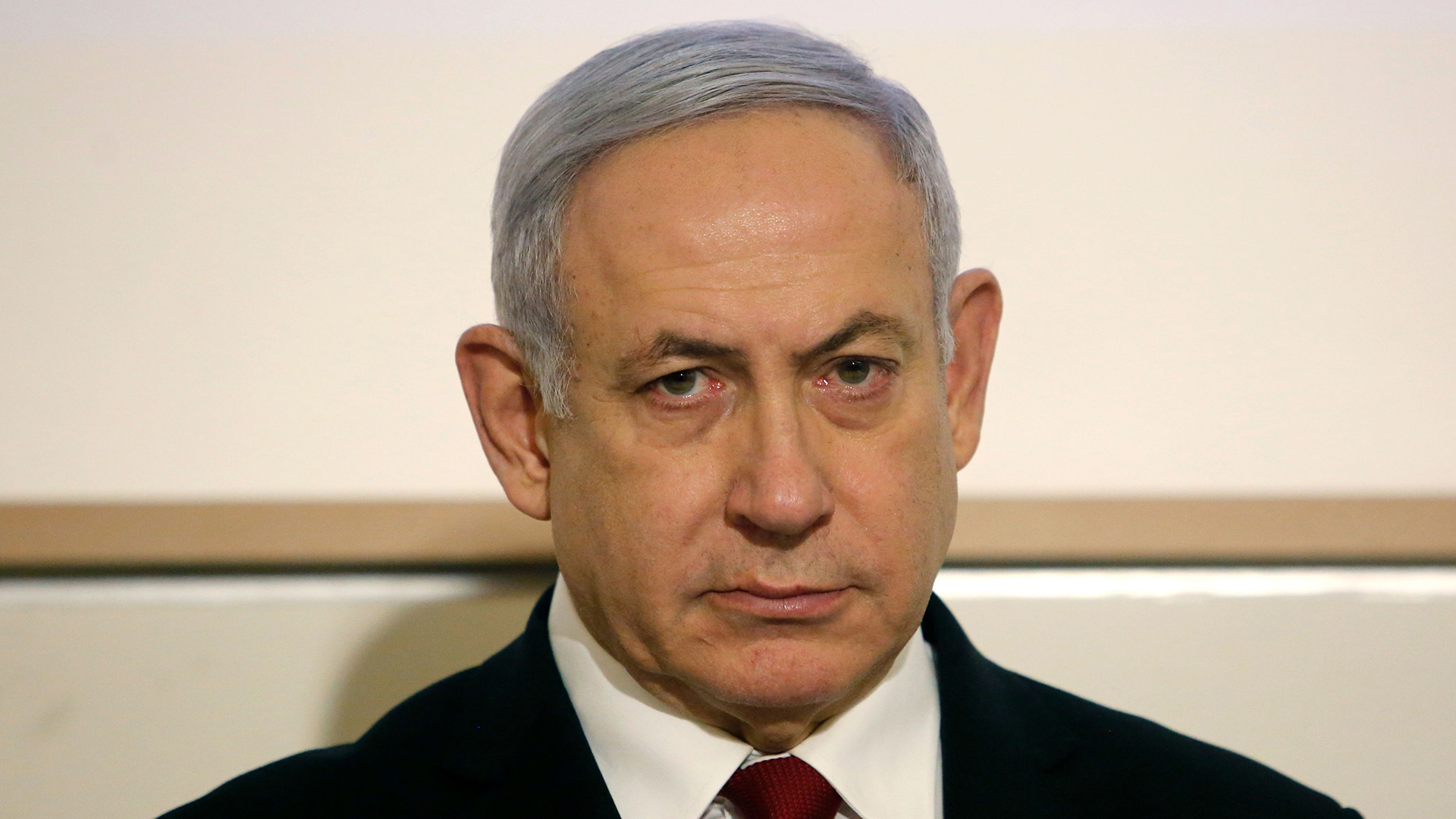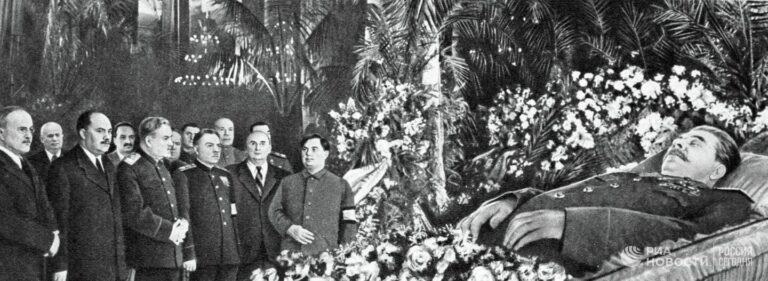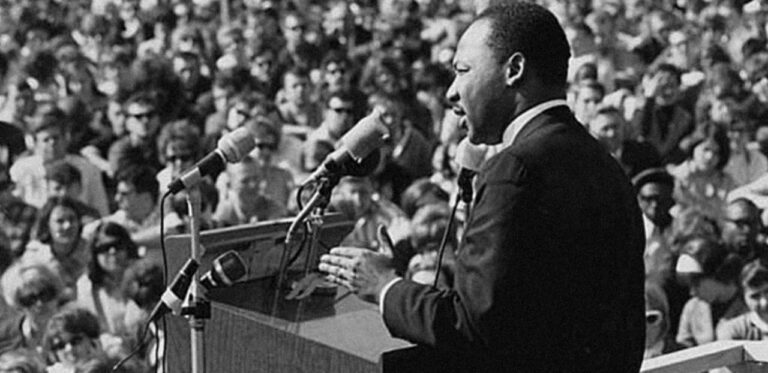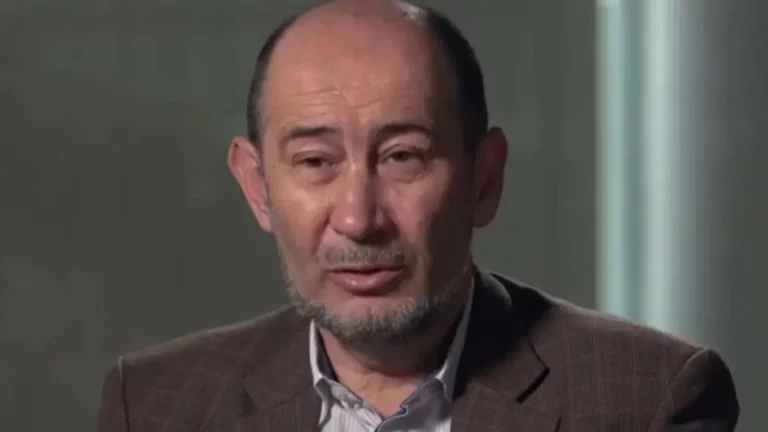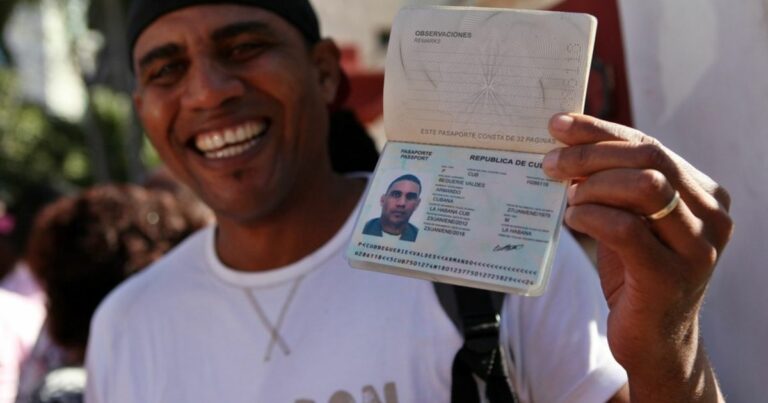Architect of Apartheid in Israel: “If we don’t kill, we will cease to exist” – Blumenthal (pt 4/5)
This is an episode of Reality Asserts Itself, produced on October 31, 2013. In this episode of Reality Asserts Itself with Paul Jay, Max Blumenthal looks at Arnon Sofer, one of Israel’s most important strategic thinkers, who developed plans to defend Jewish demographics.
PAUL JAY, SENIOR EDITOR, TRNN: Welcome to The Real News Network. I’m Paul Jay in Baltimore. And welcome to Reality Asserts Itself.
We’re continuing our series of interviews with Max Blumenthal about his new book, Goliath: Life and Loathing in Greater Israel. And he now joins us in the studio.
Max is an award-winning journalist, a bestselling author. And his last book before this one was Republican Gomorrah: Inside the Movement That Shattered the Party. It was a New York Times and Los Angeles Times bestseller. And, of course, this book is Goliath: Life and Loathing in Greater Israel.
Thanks for joining us again.
MAX BLUMENTHAL, AUTHOR, JOURNALIST, BLOGGER: Good to be with you.
JAY: So you have a profile of a very fascinating guy in the book. And I want to read a quote. His name is Arnon Sofer. And I’ll read a quote from the book, and then we’ll talk about him.
As with everything that guided Israel’s national policy, demographics were an overriding factor. Quote, unilateral separation doesn’t guarantee peace, Arnon Sofer, the so-called “Arab counter” who helped devise the Gaza separation, remarked in 2004. He guarantees a Zionist Jewish state with an overwhelming majority of Jews, end quote. Echoing the stark forecast Dayan presented at [nahaoU’Oz] almost five decades before, Sofer spelled out the implications of the withdrawal. Quote, when 2.5 million people live in a closed off Gaza, it’s going to be a human catastrophe. Those people will become even bigger animals than they are today, with the aid of an insane fundamentalist Islam. The pressure at the border will be awful. It’s going to be a terrible war. So if we want to remain alive, we have to kill and kill and kill, all day, every day. If we don’t kill, we will cease to exist.
So tell us about Arnon Sofer, ’cause when I read this quote, I first of all wanted to know, well, is this some, like, crazy guy on the margins of Israeli society. And I went and I–we’ll put up his picture for you. This guy’s a real guy. Sofer is one of the University of Haifa founders. Amongst other things, since 1970 he taught, mentored, and is involved at the IDF, Israeli Defense Forces’ Command and Staff College. In 1978 he became a professor of the National Defense College and was appointed head of the college research center in 2007. He’s retired now, but he teaches senior people in the military. And this is his quote, kill, kill, kill if we want to exist.
BLUMENTHAL: Yeah. I mean, I think it’s important to see everything that’s happened since 1893 as something that is–as a blueprint that’s been meticulously planned and designed to confine the Palestinians to as small a space as possible, with the most Palestinians in the smallest space, to reserve the most land for Jewish Israelis. Arnon Sofer has really designed the policy of the last maybe decade or 15 years that has defined the political and geographic and even the military environment in Israel. He’s one of the most influential people in Israel and the post-Oslo era. And most people watching this right now have never heard of Arnon Sofer.
Arnon Sofer is nicknamed by his colleagues at Haifa University Arnon the “Arab counter”. And that’s because he is a demographer who’s obsessed with conceiving policies and plans to engineer the Jewish demographic majority until well into the future. And you heard this quote about him talking about Gaza becoming sealed off and the Israeli army being required to kill and kill all day every day–otherwise, we cease to exist. This is right before the Gaza withdrawal, as it’s known, when thousands of settlers, mostly religious nationalist settlers, were withdrawn against their will from the Gaza Strip and the Gaza Strip was promptly placed under siege. Hamas was elected, fended off a coup from Fatah, and the siege was tightened.
And Arnon Sofer’s prediction really came to bear. The Israeli military calls it “mowing the lawn”. But they mount these periodic strikes or escalations, which culminated with Operation Cast Lead, with drones, where they’re constantly attacking and harassing the civilian population of Gaza and also attacking whatever military targets they can find.
And this relates to the general policy of separation. Israel has officially separated with Gaza. It no longer has settlements there, has no desire to be among the people. And so they have basically become surplus humanity. Gaza has to be warehoused.
Then Sofer devised this policy because the Gaza strip consisted of 80 percent refugees, who actually have connections to land inside Israel, primarily in southern Israel, were ethnically cleansed in 1948 and in the years afterwards, and they’d like to return. So this is a way of maintaining the Jewish demographic majority.
But even before that, Sofer produced an influential monograph called Israel 2000-2020, where he predicted the end of a Jewish demographic majority between the river and the sea unless Israel carried out a certain blueprint. And he sold Ariel Sharon on this blueprint right before Sharon became prime minister. And it demanded that Israel build a separation wall within the West Bank, surrounding the major Jewish settlement blocs and bringing them into what would be a future Jewish state; then confining the Palestinians to what he called three sausages, which are the three major bantustans of the West Bank, which we talked about before, the three major population areas. This was what convinced Sharon to begin building the separation wall, which has caused so much misery among Palestinians. And it’s actually a policy that the Israelis, that Sofer refers to as hafrada, or separation, which is really eerily reminiscent of the Afrikaans phrase apartheid, which means separateness.
And it’s through this policy Sofer’s ideas have influenced and even animated the political reality today in Israel, where Palestinians from the West Bank and Gaza have basically disappeared from Israeli life, or they’re not as present inside Israel proper. And so Benjamin Netanyahu is able to boast of this kind of one-way peace and preside over it, where Israelis are at the beach in Tel Aviv, they’re at cafés in West Jerusalem, and they don’t fear Palestinians anymore, and they hardly see them anymore. Early in the ’90s, Yitzhak Rabin declared his goal was to take Gaza out of Tel Aviv. And that’s happened under Netanyahu.
During the Second Intifada, when there was a wave of suicide bombings, Haaretz, the voice of the liberal Israeli public, declared that the repression campaign in the West Bank of the Israeli army was a war for croissants in the morning and beer in the evening, because it was the cafés of the enlightened public that were under attack, the bars of the enlightened public that were under attack by suicide bombers. It was Benny Morris’s café that was bombed in Jerusalem that led him to this extreme right-wing conclusion that Palestinians have to be placed into a cage.
So they have been put in a cage under Sofer’s policies in the Gaza Strip, and increasingly in the West Bank, and this has allowed to Netanyahu to enjoy political stability, to enjoy the complicity of the Zionist left and the enlightened public and the support of the right as he expands settlements. And Netanyahu refers to this environment as peace without peace–or this policy as peace without peace–in other words, that Israelis are enjoying a one-way peace while Palestinians are constantly harassed and besieged and there is no agreement possible. As long as there’s peace without peace, Netanyahu remains dominant with no clear rival or challenger.
JAY: Criticism of your book, of course, is emerging as you do interviews and people read the book. You mentioned the terrorist attacks that took place, and especially during the Second Intifada. I think it was something like about 700 Israelis were killed during this early 2000s. One of the criticisms of the book is you don’t deal with some of the external reasons for this growth of more overt racism in Israel. One of your critics, from a supposed-to-be-progressive publication, The Nation, Eric Alterman, he writes the following:
“Blumenthal evinces no interest in the larger context of Israel’s actions. Potential threats that emanate from Hamas, Hezbollah, Al Qaeda, Syria, Iran, etc., receive virtually no mention in these pages. Israel’s actions are attributed exclusively to the myopia of its citizens. Blumenthal blames ‘Israeli society’s nationalistic impulses,’ its politicians who struggle ‘to outdo one another in a competition for the most convincing exaltation of violence against the Arab evildoers,’ its ‘fever swamps,’ its ‘unprovoked violence against the Arab outclass,’ and its textbooks that ‘indoctrinate Jewish children into the culture of militarism.’ It would have been easy for him to at least pretend to even-handedness here. Did it not occur to Blumenthal, for instance, that Palestinians have textbooks as well?”
So what do you make of his criticism? And I need to add, I’ve read much of Alterman’s other criticisms, and it seems to me it’s just someone out to get you, and I’m not going to deal with them, ’cause I don’t think they’re all that significant or serious. And we have actually invited Mr. Alterman to come onto the show and make the criticisms of his book directly to Max and let them discuss and debate it, and Mr. Alterman said, no, thanks.
But is there something to this that the book doesn’t deal with, for example the effect of terrorist attacks at cafés and what that did to help the right consolidate this more overt racist position?
BLUMENTHAL: I talk about that explicitly in the chapter called “The Big Quiet”.
Alterman didn’t read my book. It’s just pretty clear he didn’t read my book. However, his desire for me to condemn Hamas and Hezbollah before I can talk about the roots of the crisis is ridiculous and anti-intellectual. And his plea for evenhandedness is hypocritical if you read his own writings on the false objectivity of the Washington press corps, which insists on playing on the one hand, you know, there’s the Democrats’ policy, on the other hand there’s the far-right wing of the Republican policy, and he always criticizes that, but he wants me to be evenhanded between the occupier and the occupied.
What I’m trying to do is elucidate an idea which is not very complex–it’s actually very elementary–which goes to the heart of the crisis in Israel-Palestine and the roots of the Palestinian armed struggle and Palestinian violence, which is resistance to settler colonialism. And we witnessed it in the United States with the Native Americans using violence, and including acts of terror: they slaughtered, they killed women and children in their homes in Western frontier settlements at times because they were being dispossessed. We witnessed it in South Africa: the African National Congress, under the control of and direction of Nelson Mandela, carried out an armed struggle, including terror attacks, against the white Afrikaner population during apartheid South Africa. And we’ve witnessed it among the Palestinians.
And the root of this crisis is not the occupation of ’67, per se, although that’s a huge part of it. The roots of it are a settler colonial project that began in 1893. And we’ve just witnessed a historical progression. And what I talk about is, you know, the current phase that it’s in, which I think is a terminal phase. But I also discuss the historical roots.
And this is a debate that I’d wanted to engage in with liberal Zionists. I think it’s an honest debate that can be had. But Alterman–you know, you’ve found maybe the only paragraph in the thousands and thousands of words that he’s written in these series of screeds seeking to impugn me and my book–which he has named the book of the month club for the Hamas book club. This is the–I didn’t know such a thing existed. But, you know, I want to just give big ups to all the friends of Hamas out there. You know.
JAY: Hamas’s version of Oprah.
BLUMENTHAL: No, it’s classic McCarthy, McCarthyism. But you found one paragraph where he offers a sort of hackneyed mainstream Zionist analysis of the book.
JAY: Let’s forget Alterman. But–.
BLUMENTHAL: Well, I want to say something more, which is that he’s one of the few liberal Zionists who’s actually attempted to offer an extended critique of my book, and this is what he’s able to come up with. It’s very hard for them to grapple with the facts and the analysis that are contained in my book Goliath, and that’s why they’re shying away from me. That’s why–I think that’s why Peter Beinart will never allow himself to be in the same forum as me. He’s even backed out of a televised panel when he found out I was on the panel.
JAY: Is it getting any mainstream reviews?
BLUMENTHAL: Well, there’s one review that’s notable, and it is by someone who could be considered a figure of the Zionist left in Israel, Akiva Eldar, who is a veteran Israeli journalist who’s been reporting on the situation for, I think, as long as 30 years. He’s written an incredible book on the settlement enterprise called Lords of the Land with Idith Zertal, who’s an Israeli professor and an expert on the Holocaust and Israeli life. And he has written an extremely positive review of my book. Even though I think he might disagree with a lot of my conclusions, he has called on people to answer the challenge that’s contained in this book, and he said that this book reminded him of the reality that had faded into a “bas relief,” because he had been so inured and become so immune to the daily acts of petty violence and racist incitement that are all around him, he almost forgot it existed. I reminded him of its presence.
And so compare Akiva Eldar to Eric Alterman, someone who’s a denizen of the Upper West Side, versus Akiva Eldar, who spent 30 years pretty much in the trenches of Israeli politics, and compare their reviews, and I think you’ll see a pretty strong contrast, both in their level of experience and understanding of the crisis and in their review of my book.
JAY: There is–true or false: there is serious trends of Jewish hatred, anti-Semitism amongst the Arab world and amongst Palestinians; it exists.
BLUMENTHAL: Definitely.
JAY: There is a trend within Palestinian politics that would like to see Israel gone and would like to see most Jews leave.
BLUMENTHAL: Definitely. But, I mean, it depends on what trend you’re talking about.
JAY: Well, I personally talked to an official from Hamas in Beirut who essentially told me, you know, someday we’re going to have so many rockets, meaning Hezbollah in Lebanon and Iran and all of this, that the threat of all this is going to drive Jews in Israel to the airports.
BLUMENTHAL: I can tell you stories about that. You know, when I’m meeting people who have been driven from their homes–I met a family who is living three kilometers from their home, which is now occupied by artists and had been turned into an art studio, and they welcomed me. And then the daughter, I said: what do you think will happen in the future? And the daughter, who is 12, who spoke very good English, said, well, the Jews will eventually leave. And you can call that anti-Semitic if you want, but this is what often happens in situations where the relationship of a group, of a settler group and a group of indigenous people, is defined in colonial terms. And that’s the kind of environment that Israel, that the state of Israel has created, where they’re constantly fearing being thrown into the sea.
But it was Palestinians in Jaffa, in the Menashiya neighborhood, who were literally thrown into the sea and forced away on boats. And their refusal to allow them to return is what highlights, what animates this sense of insecurity and this fear that those people will eventually return. And the longer that that Goliath continues to bloody his hands–he’s constantly worried, like any bully is, of who will rise up and finally stab him in the back and fell him.
And so it’s this kind of relationship, the colonial relationship between Palestinians and Israeli Jews, that is at the root of the whole crisis. And it’s what has to be appended if there is to be a just peace in the holy land.
So, I mean, when you talk about the fears of the Israeli public, you’re talking about fears that don’t necessarily have to be there. You’re also talking about fears that are particular to the Israeli public that looks at history from a European perspective and sees their past and even their future in Israel–in Europe. I mean, the exodus of Israelis is already happening. As many as 600,000 to 1 million Israelis are living abroad.
And I write–my book ends with a portrait of Berlin, where 15,000 Israelis are already living in the city where the Final Solution was planned. They’ve taken–most of them have taken citizenship, and they love it there. And this is where they are able to experience freedom and light and justice. They’ve turned their back on the gloom and doom of Netanyahu. And they don’t have to go through this experience of colonizing another people. So they’ve already kind of left and moved on. And this crisis will continue.
So how can it be ended is the question. It can’t be–we have to look past a two-state solution now and start looking at the real roots of the crisis. And that’s really what’s going to, I think, depress the rising degree of classical anti-Semitism we’re seeing being promoted in the Arab world, because the colonization of Palestinians is really the key catalyst. It’s why Protocols of the Elders of Zion has been a top-selling book in Egypt. If you talk to younger Egyptians, they don’t know that Jews used to live in their own country, that tens of thousands of Jews used to live in their own country. They don’t know that Leila Mourad, the famous Egyptian Taarab singer, was Jewish. They don’t know that there is a Jewish heritage in Egypt, and a real Jewish heritage.
And, you know, when I went to Lebanon, to Beirut, I went to see the Jewish synagogue that was actually shelled by the Israeli Army and destroyed, and it’s been rebuilt. And I was removed from the grounds because of the level of security around the synagogue. But there is a Jewish heritage in the Arab world. And that’s something I talk about in my book, too, through a portrait of my former roommate, Yossi David, whose family comes from Iran and Tunisia and has decided, you know, I’m an Arab, I feel closer to Palestinians than I do to Ashkenazi Jewish Israelis, and I want to build this Levantine bridge so that we can have a future together after this colonial relationship is upended.
So we have to also look past the Ashkenazi perspective on the conflict and look at who wants to be indigenized in Israel-Palestine, who wants to really genuinely live together. And it could be a total bloodbath, like you suggested, but there are also opportunities and possibilities that are opening up that I want to explore and possible relationships between groups that we have never considered who could actually live together. That’s why it’s so important to start looking past the hackneyed, worn-out, and obsolete two-state solution, which focuses on ethnic separation, which was based on the idea of us over here, them over there, a concept we’ve thrown away in the United States as segregationist, and start looking at who wants to genuinely live together and who demands colonialism and insists on its perpetuation for as long as they can maintain it.
JAY: Thanks for joining us.
And thank you for joining us on The Real News. Max’s book, again, is Goliath: Life and Loathing in Greater Israel. And this concludes our series with Max on Reality Asserts Itself.
“Max Blumenthal (born December 18, 1977) is an American author and blogger. Blumenthal is the editor of The Grayzone website, which is known for its apologetic coverage of—among other authoritarian regimes—the Chinese, Russian, Syrian, and Venezuelan governments, as well as denial of the Uyghur Genocide and other atrocities committed by these regimes.”
